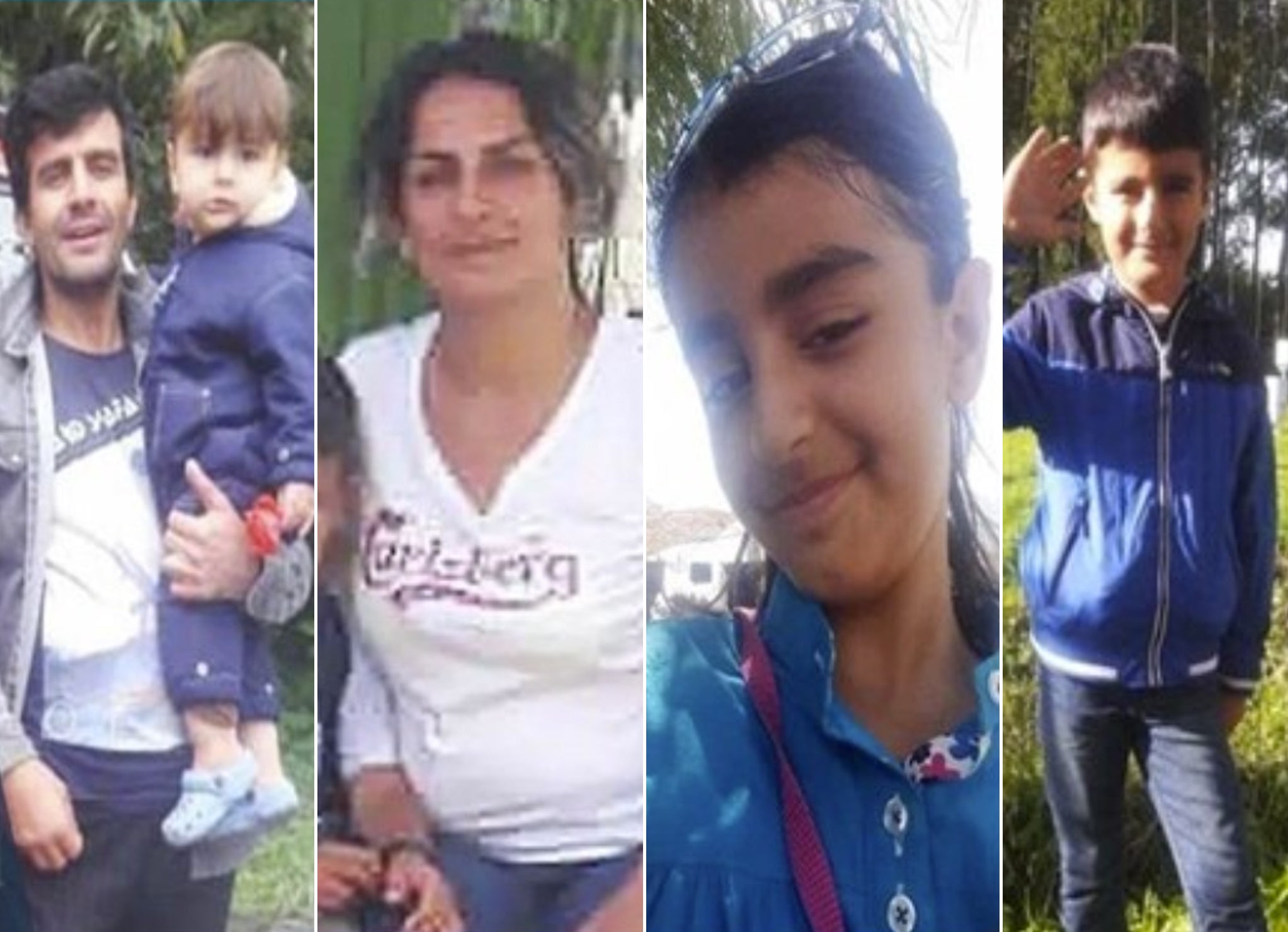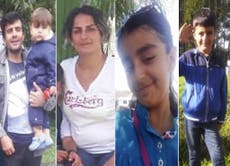Family who died in Channel crossed because they were afraid to stay in Calais over winter, says fellow migrant
Exclusive: ‘She had been texting me from Calais telling me the weather was terrible and she was worried about her children. She just wanted her children to be able to rest,' says asylum seeker who knew family

Your support helps us to tell the story
From reproductive rights to climate change to Big Tech, The Independent is on the ground when the story is developing. Whether it's investigating the financials of Elon Musk's pro-Trump PAC or producing our latest documentary, 'The A Word', which shines a light on the American women fighting for reproductive rights, we know how important it is to parse out the facts from the messaging.
At such a critical moment in US history, we need reporters on the ground. Your donation allows us to keep sending journalists to speak to both sides of the story.
The Independent is trusted by Americans across the entire political spectrum. And unlike many other quality news outlets, we choose not to lock Americans out of our reporting and analysis with paywalls. We believe quality journalism should be available to everyone, paid for by those who can afford it.
Your support makes all the difference.A family that died in the Channel attempted the perilous crossing because they were fearful about staying in Calais during the winter months, according to a fellow asylum seeker.
Four members of a Kurdish-Iranian family, including two young children, drowned on Tuesday morning when a boat they were travelling in sank off the coast of Dunkirk, in the worst known migrant boat disaster in the English Channel. Their 15-month-old boy, Artin, remains missing.
The BBC identified the deceased family members as Rasoul Iran-Nejad, 35, Shiva Mohammad Panahi, 35, Anita, nine, and Armin, six, from from Sardasht, a city in northwest Iran.
Mobin, 23, an asylum seeker who crossed the Channel to Britain last month, said he met the family in Turkey in the summer, and that they had been having difficulty gathering enough money to pay smugglers for their journey to Greece. He said he left two days later, but had stayed in touch with Shiva until the day before they drowned.
“She had been texting me from Calais telling me the weather was terrible and she was worried about her children. They had been there for about a month, living in tents. She told me they were exhausted with the situation and that she really wanted to come to the UK,” he told The Independent.
“I know how it feels. On one hand you’re afraid about the boat and smugglers, on the other hand you can’t take one more day in this place. It’s a dilemma, and sometimes you just accept the risk.”
Mobin, an Iranian national who fled political persecution in the country, said the family had been hoping to reunite with Shiva’s brother in the UK.
Describing the family, he said Rasoul was shy while Shiva was energetic and “constantly looking for the best solution”. He described Anita as “clever, curious and charming”, Armin as a “naughty boy”, and the youngest son Artin, who remains missing, as “adorable”.
“I couldn’t believe it when I found out what happened to them. For a mother of three children imagine how difficult it must have been. She just wanted her children to be okay and to be able to rest,” Mobin said
“We were going to meet up when they got here. I wish I had told them not to cross. I wish I told them that it was too dangerous.”
The family’s relatives had warned them that the crossing was too dangerous, according to The Telegraph.
“We begged him to not try to cross by boat,” said Khalil Irannazhad, Rasoul’s brother, according to the newspaper. “He insisted on going. It was the third time that they had attempted to cross to the UK. Two times they wanted to cross via train and the last time they wanted to cross by boat.”
Charities have warned ministers that more deaths in the Channel are inevitable unless safe legal routes are introduced, and that the “hostile” approach taken by the UK and French governments to address the rise in crossings was only pushing migrants to undertake more perilous and potentially fatal journeys.
Migrants in Calais told The Independent they were shocked by the incident but that they would continue trying to cross the Channel because they have “no other option” of finding a place of safety.
A Home Office source said: “The saddening details of this family’s journey, from Iran and through Europe, just show that increasing the opportunities to claim asylum from within Europe will not stop dangerous crossings.
“Instead it would just incentivise more people into making treacherous journeys into Europe knowing they can [claim] asylum when they arrive. We have to help more people directly from the effected regions and that is exactly what the government are planning with the new, firm and fair asylum system which will welcome people through safe and legal routes.”

Join our commenting forum
Join thought-provoking conversations, follow other Independent readers and see their replies
Comments